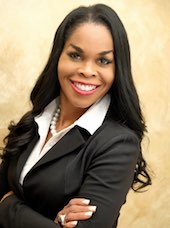9 minutes
Develop an authentic leadership style through self-reflection and leveraging your emotional intelligence and intuition.
Being an effective credit union leader means having the confidence to forge your own path. Some women are able to discover that confidence more easily than others. These are the women who look within themselves for leadership qualities rather than attempting to emulate others. Because of that, their leadership style feels real—authentic—and better positions them for success.
Authenticity is essential to the process of becoming a successful leader. For that reason, Sue Hawkes, CEO and founder of YESS!—Your Extraordinary Success Strategies and author of Chasing Perfection—Shatter the Illusion, Minimize Self-Doubt & Maximize Success, says it’s a mistake for women to emulate other leaders, because in doing so, they deprive themselves of the genuineness and credibility that will allow them to achieve their full potential.
“I can watch what you’re doing as a leader and say, ‘I want to do everything exactly like you,’ but the chances of it being authentic to me are slim to none,” explains Hawkes, an award-winning seminar leader, business coach and Certified EOS (Entrepreneurial Operating System) Implementer® who has worked closely with many successful female leaders. “You can’t pretend your way through leadership, and that’s where I think emulating others can get in the way.”
While learning from other leaders is important, Hawkes observes that this can be done without trying to mimic another individual’s leadership style. “Each of us is too unique for that. Instead, you can use what another person does as a catalyst for bringing the best version of yourself forward.”
Female leaders also should be wary of trying to be too much like their male counterparts. “The majority of leadership books are overrun with male versions of what leadership is,” Hawkes shares. “They present a man’s way of thinking and doing and processing the world, which is fine for men but can be frustrating for women because it’s not consistent with the way women lead. Being kind and caring and nurturing … —though men can have those qualities as well—are often a woman’s best strength.”

Achieving Self-Awareness
How do women find the necessary qualities within themselves to become effective leaders? The first step, says business owner and author Christine Fowler-Phillips, is to be self-aware.
“Self-awareness is key,” contends Fowler-Phillips, CEO and founder of Discover Your Best Self LLC, a corporate image consulting company that provides training and development in such disciplines as leadership, public speaking and effective communication. “You have to be able to understand yourself—your own character, your own feelings and your own desires. When you’re self-aware, you increase your ability to understand others, and that helps you understand … the best way for you to lead.”
Fowler-Phillips, who spent two decades working in sales and marketing in the pharmaceutical industry, has translated her corporate success into a career as a consultant and public speaker. She shares key advice for women who are striving to be effective leaders in her book, Discover Your Best Self … and Stick With It: A Guide to Creating a Winning Image. One of her many insightful recommendations is that women should draw upon their own personal experiences to develop a leadership style that works best for them.
“It’s important to know what’s worked for you in the past, based on the experiences you’ve had, so you can determine how you can most effectively lead in the future,” Fowler-Phillips says. For that reason, she suggests that women ask themselves: “What is it that you’ve done that is unique and different, that you can use to brand yourself and to set yourself apart from other leaders?”
Branding is the operative word. As Fowler-Phillips explains, leaders should not only strive to make themselves compatible with their corporate or organizational branding—they also should work to develop their own personal brand.
Women can express their personal brand in a number of ways. For instance, Fowler-Phillips uses the tagline “Always the Best” whenever she signs her name. Other women might brand themselves by sending out inspirational quotes on a weekly basis. Or they could become known for a particular skill, such as giving flawlessly prepared and executed presentations.
“The key to personal branding is to determine how you want to distinguish yourself from your colleagues and counterparts,” Fowler-Phillips explains. “It’s determining what you want to be known for. What are the skills you want to develop that are specific to you?”
Leadership Development Strategies
Emerging leaders can benefit greatly from availing themselves of such development strategies as mentoring and coaching. However, Fowler-Phillips urges these leaders to keep one thing in mind: You are not your mentor. “As you become a leader, you should develop a brand that is distinct and separate from your mentor’s brand. Your mentor is someone who guides you, who gives you information, who shares best practices with you—but you still have to be your own individual.”
Hawkes also sees the value of having a great mentor. However, she notes that a single mentor may not have all the answers for every aspect of your journey. “I think, in many cases, it’s better to have a team of mentors, because no two people are alike and the chances of you walking the same path as your mentor are relatively slim. If you have several people mentoring you, you can take the best guidance, perspective and advice from all of them.”
Another development tool that Hawkes strongly advocates is journaling, which gives emerging leaders a chance to be reflective and determine their own best leadership qualities. “Journaling works very well as a form of self-coaching,” she explains.
To facilitate the journaling process, Hawkes has developed the Maximizing Success Journal as part of the companion toolkit that accompanies her book, Chasing Perfection. “It’s a journal for people who don’t journal,” she explains. “It features a question per day and a theme per week as well as forms for prepping and debriefing for the week. You can write for as little as three minutes a day, but those three minutes are a real game-changer. Seeing your thoughts on paper will help you identify where you need to grow as well as the qualities you should use more often.”
Understanding EQ
One of the inner attributes that women can draw upon as leaders is their emotional intelligence, also known as EQ. “Emotional intelligence is basically the ability to recognize, understand and manage your emotions and to recognize and understand the emotions of others,” says Fowler-Phillips. “As part of emotional intelligence, it’s important to understand that your emotions influence the emotions of others. When you’re communicating with others, for instance, you should be cognizant of how you say certain things, because your words will have an emotional impact.”
Fowler-Phillips recommends that leaders and potential leaders familiarize themselves with the five critical components of EQ that author Daniel Goleman described in his seminal book, Emotional Intelligence: Why It Can Matter More than IQ. One of those components is self-awareness, which Fowler-Phillips mentioned above as an essential attribute to becoming an effective leader. The other components are self-regulation, social skills, empathy and motivation. All of those are important aspects of how we relate to other people.

Women have gained a reputation for excelling in emotional intelligence—an assessment borne out by research. Fowler-Phillips cites a global study of 24,000-plus leaders and workers, conducted by 6seconds.org, which revealed that female leaders have an edge over men in EQ, specifically in such areas as assessing emotional data, managing emotional response and purposefully applying emotion toward significant action.
Hawkes points out that women (and men) have the opportunity to develop their EQ over time. “IQ is said to be locked in by the time you’re in your 20s, whereas your EQ is a skill set you can improve throughout your entire life.”
These EQ skills become more important the higher women rise in the organizational hierarchy. “When you’re managing people to achieve an outcome, that’s where amazing leadership and soft skills like EQ come in,” Hawkes says. “Emotional intelligence becomes critical, because if I can work with you and communicate with you in a way that allows you to feel appreciated and cared for, then it provides acknowledgement that your contribution as an employee matters. That’s the type of interaction that leaders should strive for.”
Bringing Value
Women bring considerable value to their organizations as a result of their superior EQ skill sets, but Fowler-Phillips observes that female leaders bring value in many other ways as well. “If you’re helping others in the organization, if you’re introducing new concepts and sharing your creativity, then you are bringing value.”
However, relying on one’s current value to the organization is not enough to be an effective leader in the long term. “I think a mistake that we make is viewing value to an organization as a permanent state,” Hawkes says. “It’s something that ebbs and flows as your skills increase or decline.”
Fowler-Phillips recommends that women strive for continual improvement so that their value to the organization never diminishes. “When you discover something that works for you—whether it’s taking a course twice a year or honing in on your skill sets (i.e., sharpening your saw)—it’s important that you stick with it,” she remarks.
Another way that women can heighten their value to an organization is to adhere to what Fowler-Phillips calls the four P’s—preparation, practice, perseverance and performance. While all of these factors are important, perseverance may be a quality that particularly resonates with women.
“As women, we must persevere because sometimes achievement is harder for us than it is for our male counterparts,” Fowler-Phillips explains, but she contends that women are up to the task. “Women are strong beings. We have so much to offer and are so many things to so many people. We’re mothers, we’re sisters, we’re business owners, we’re friends. … I think that women are among the best leaders in the world—period, end of discussion.”
But women’s success as leaders ultimately comes down to the final of the four P’s: performance. “I write in my book that it’s always important to bring your ‘A’ game—every day and all day,” Fowler-Phillips says. “That means being proactive, being able to think on your feet and being prepared to deal with the unexpected.”
Hawkes also sees value in female leaders who rely on their instinct as much as they do their intellect. “Nobody has your answers,” she explains. “That’s why I believe your gut, coupled with your intellect, is going to steer you right every time. Too often we negate intuition and rely solely on our head, and that’s where I think we lose the game, because women [often] have a competitive advantage in terms of accessing their intuition.”
Use that intuition, Hawkes advises, along with taking advantage of mentoring relationships, journaling and becoming more emotionally intelligent, so that rather than mimicking someone else’s leadership style, you develop your own. “All of these practices help women be authentic and not emulate others along their leadership journey,” she says.
In exploring their most effective leadership skills and qualities, women should never underestimate what they can bring to the table. Fowler-Phillips concludes: “Know your value, know your purpose, know your worth and know that you make a difference. Build meaningful relationships, and use everything you’ve learned in your career. That’s what good leadership is all about.” cues icon
Diane Franklin is a longtime contributor to Credit Union Management based in Missouri.





